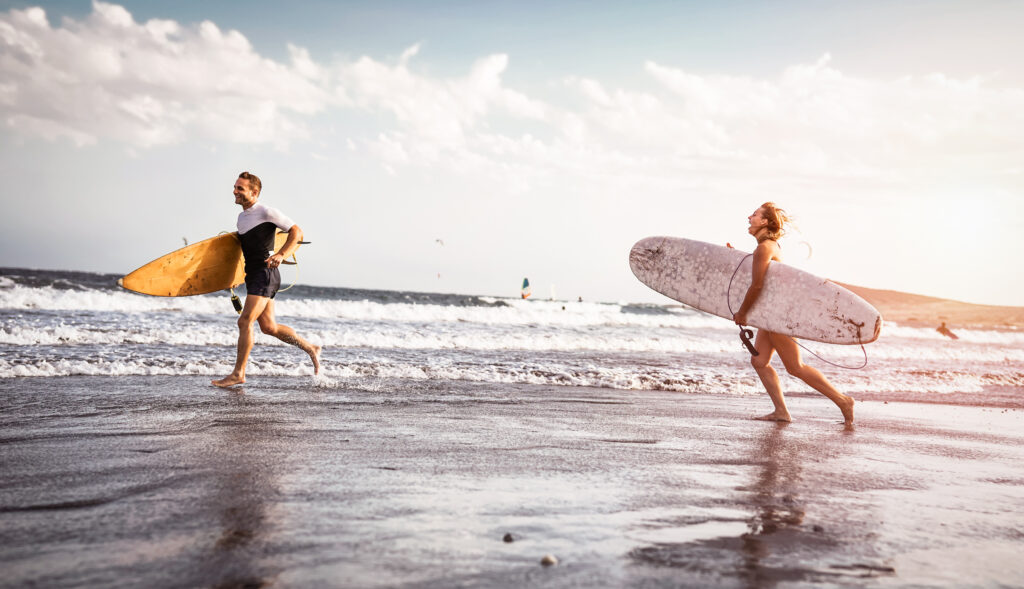How To Pick the Perfect Surfing Board for Beginners
So, you’ve decided that surfing is the sport for you. Congratulations! You’re about to embark on a wonderful journey of learning and exploration. Now, it’s time to buy your first board. But how do you choose the perfect board? Read on to learn all about picking the perfect surfing board for beginners.

Size Matters
The size of your board will affect how easy or difficult it is for you to catch waves and stay balanced while riding them. As a general rule, the bigger your board, the more stable it will be. However, bigger boards are also heavier and harder to maneuver in the water. So, new surfers should look for a mid-size board that is easy to control and offers enough stability while still being relatively lightweight.
Material Matters
Surfboards are typically made from either foam or fiberglass. Foam boards are more durable than fiberglass boards, but they tend to be a bit heavier as well. Fiberglass boards are lighter than foam boards, but they can be brittle and prone to damage over time. If you’re just starting out, then foam may be the better option since it will provide more stability in the water without being too heavy or easily damaged.
Shape It Up
Your board’s shape also affects its performance in the water, so it’s important to pick one that suits your body type and skill level. For example, shortboards with round noses are great for experienced surfers who want more maneuverability but less stability in their rides. Longer boards with pointed noses provide more stability and buoyancy, which makes them great for beginners who need extra help staying upright on their first few waves.
Fin Configuration
Fins play an important role in how your surfboard performs in the water. Most modern surfboards come with three fins (known as thrusters) which provide grip when turning and help keep your board stable while riding waves. If you want more maneuverability, consider going with twin fins or quad fins instead of thrusters – these configurations offer more flexibility but may not be as stable on bigger waves.
Choosing the right surfboard can make or break your experience when learning how to surf, so make sure you take some time to research different models before making your final decision! The most important things to remember when selecting a board are size, material, and shape—all of which can have an impact on your overall performance in the water. With a little bit of knowledge under your belt (and maybe even some advice from an experienced specialist like local surfing shops), you’ll have no problem finding a great surfboard that fits all of your needs! Good luck!













